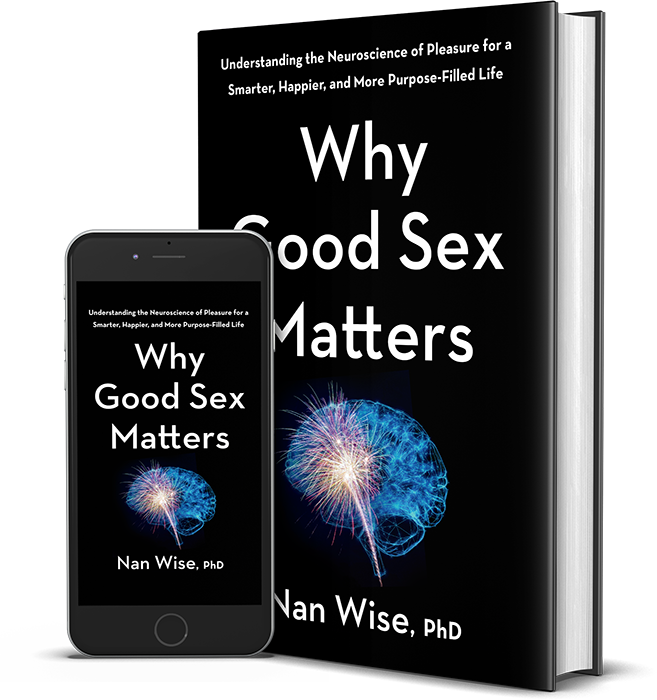Unraveling the Controversy: Is Sex Addiction a Legitimate Diagnosis or a Misunderstood Phenomenon?
One of the biggest debates in the field of human sexuality is whether sex addiction is a real thing. Some colleagues adamantly deny that the label “addiction’ is ever appropriately applied to sexual behavior. In contrast, others have overzealously applied this diagnosis when not warranted. Understandably, my colleagues are reticent about validating a diagnosis that has been erroneously aimed at people whose sexual behaviors don’t match what the larger society considers “conventional”.
In other words, anybody who did anything a little bit kinky or had a bit higher libido than deemed “normal” was labeled as being disordered. Remember, up until 1974 homosexuality was diagnosable as a mental disorder.
Recently I was called to weigh in on the topic because of my unique qualifications as a sex therapist/neuroscientist after another sex therapist dismissed the validity of the diagnosis during an appearance on the popular podcast Shameless Sex. This resulted in a backlash from some listeners who felt that their experiences with problematic sexual behaviors were being invalidated. I discussed both the dangers of over-diagnosing sexual behaviors as problematic, as was as the hazards of dismissing concerns. To listen to the full interview, click here. Here are the highlights.
Is Sex Addiction a Real Diagnosis?
Short answer: No. But Compulsive Sexual Behavior Disorder is.
There are two main guides for diagnosing diseases and disorders: the DSM (Diagnostic and Statistical Manual of Mental Disorders) and the ICD (International Statistical Classification of Diseases). The main guide for mental health professionals in the US is the DSM and it does not include a diagnosis of Sexual Addiction in its most current version (DSM 5 R). The diagnosis of Compulsive Sexual Behavior Disorder is included in the current version of the ICD ( ICD 11 ).
What is CSBD?
Short answer: a pattern of engaging in repetitive sexual behaviors despite experiencing adverse consequences.
Long answer: To qualify for the diagnosis, several criteria must be met, and the symptoms must persist for six months: The sexual behavior needs to become the central focus of life, to the point of neglecting health, other interests, and responsibilities. The person has been unable to control the sexual behaviors despite making attempts to do so. The sexual behaviors result in adverse consequences such as disruption of relationships and cause marked distress or significant impairment in personal, family, social, educational/occupational, or other important areas of functioning. Additionally, sexual behaviors are often associated with a lack of enjoyment or satisfaction.
How to better understand problematic sexual behavior?
In my opinion, what makes this topic so controversial in mental health circles is a misunderstanding of what “addiction” is. Rather than the old view of addiction as a disease, a newer model informed by neuroscience looks at this kind of behavior as “learning gone bad”. We can learn habits to self-soothe or regulate painful feelings by using behavior or substances. I address this kind of emotional learning in my book as a hijacking of the SEEKING system, a core emotional system that drives our attention, motivation, and learning. And yes, some people might be predisposed to learn to regulate painful feelings with sexual habits because of issues with how the reward circuitry of their brains work but to think of these habits as an addiction is both misleading and inaccurate. The term addiction when applied to sexual behavior lacks scientific validity and hijacks the conversation by attaching a label that stigmatizes rather than explains. It is my experience as a sex therapist that this label is used far too often as a matter of opinion rather than based on evidence. For example, how do we decide when a person has a problem with porn? How much porn is okay? Who decides? The client? The partner? The professional?
We need to keep in mind that the determination of the diagnosis of CBSD cannot be made based on moral disapproval or opinion which is far too often the case.
What about CBSD and porn use?
Most people who use pornography don’t have problems regulating their behaviors. A recent study that examined pornography use across 42 countries and over 82,000 participants found that a total of 3.2% of participants were estimated to have problematic pornographic usage. That’s a lot of people but considering the frequency that the “porn addiction” label is bandied about, one would expect a far larger percentage of people studied to be at risk. There are indeed individuals for whom pornography usage is problematic, but is it the epidemic that some would have us believe?
Listening rather than labeling.
It is my opinion as a clinician and human being that many of us are suffering from a rush to judge. Whether it is about sex or politics, we appear to have knee-jerk reactions that shut down our ability to hold the space to listen deeply and climb into each other’s experiences in ways that foster connection and compassionate inquiry. Whether we rush to judge a person’s sexual behaviors as problematic or at the other extreme, be too ready to dismiss concerns, we are not doing what needs to be done: a deeper dive into understanding another person’s experience. Slowing down sufficiently to listen over time to the many levels of an issue is a necessary skill. For example, I saw a couple in my practice who on the surface appeared to be dealing with a discrepancy in sexual desire, as is often the case with the male partner wanting more sex than his wife. Upon deeper listening, it became evident that the male partner was experiencing signs of problematic sexual behavior which warranted attention. The ability to listen deeply and tolerate our feelings in holding space is a skill that we could all benefit from honing.
Building a Sex-Positive Future
My work as a sex therapist extends beyond addressing the challenges associated with CSBD. It involves fostering a sex-positive mindset – one that embraces healthy and consensual sexual expression. By destigmatizing discussions around sexuality, we create a space for individuals to explore and understand their desires without judgment.




